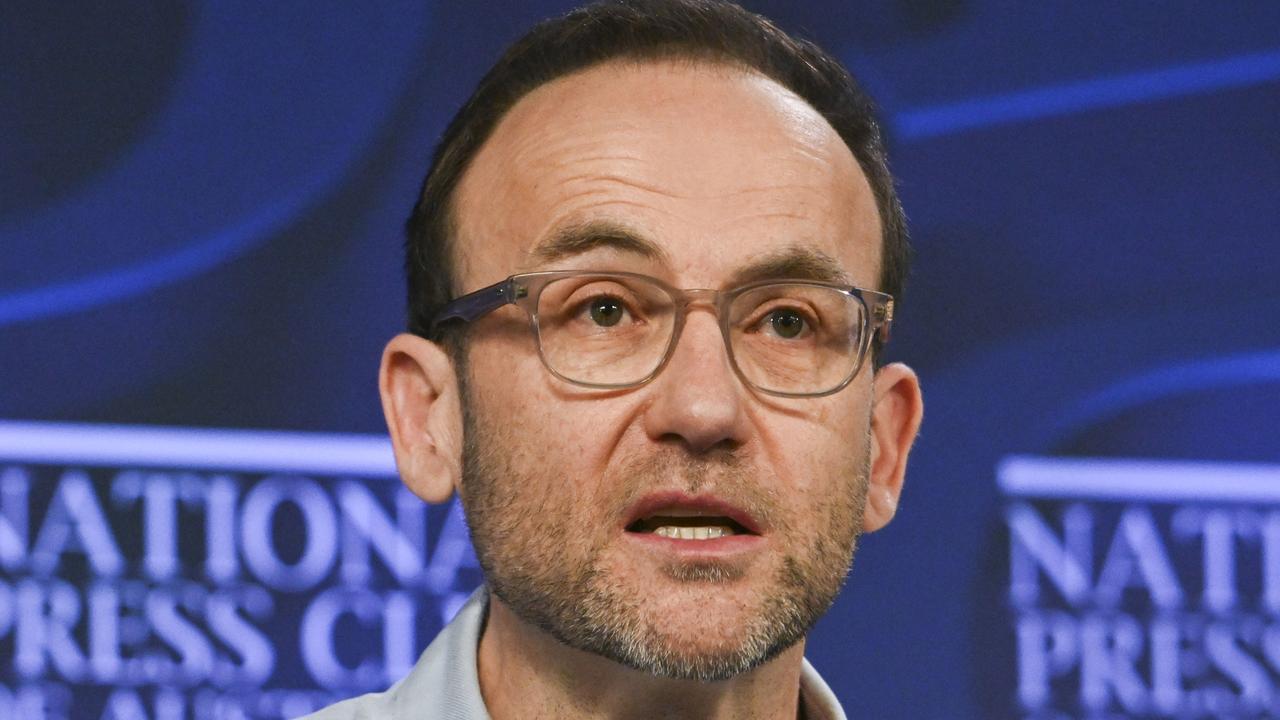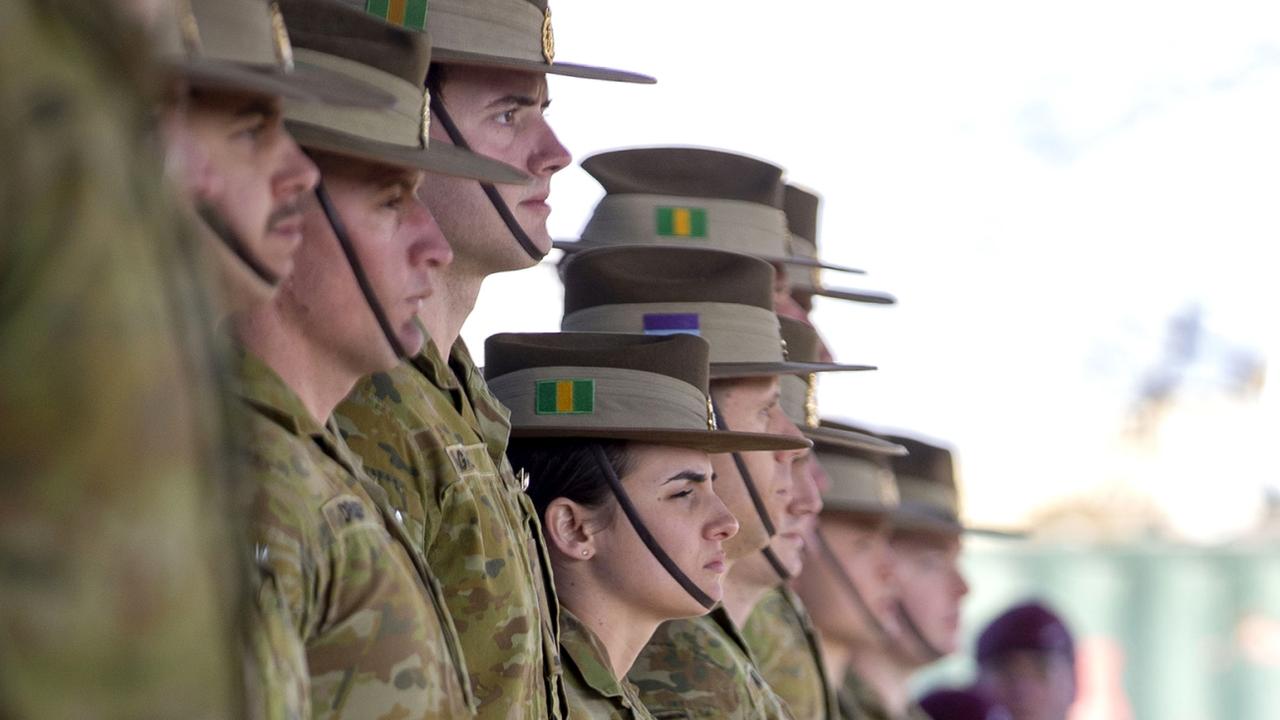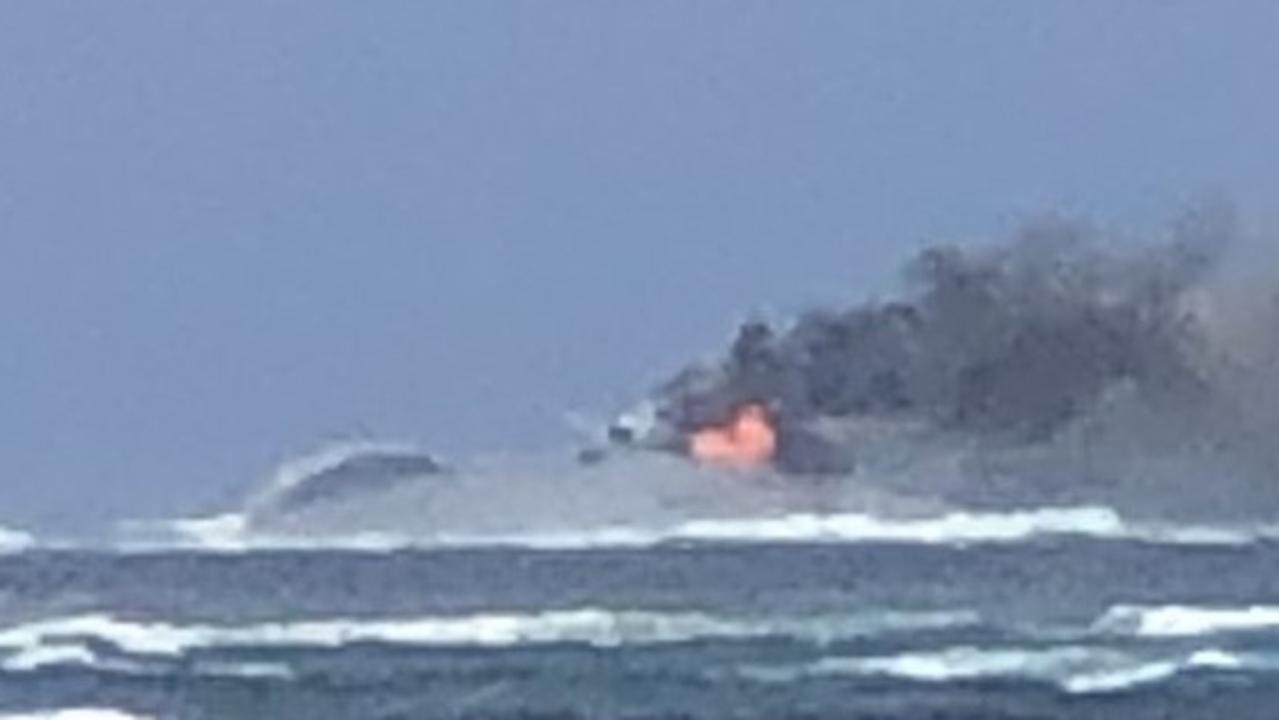Sudan coup: PM arrested, general seizes power, protests erupt
The military has seized power in Sudan, arresting the prime minister and crushing protests. A state of emergency has been declared.

Sudan has been rocked by a coup d’etat, with the Prime Minister Abdalla Hamdok arrested and at least seven people killed.
General Abdel Fattah al-Burhan is now the de facto leader of the country and declared a state of emergency on Monday.
Soldiers have rounded up civilian leaders and military forces have moved to crush protesters.
The BBC reports at least seven people died and 140 hurt after soldiers fired on crowds opposing the military takeover.
Soldiers are reportedly going from house to house in the capital Khartoum, arresting local protest organisers.
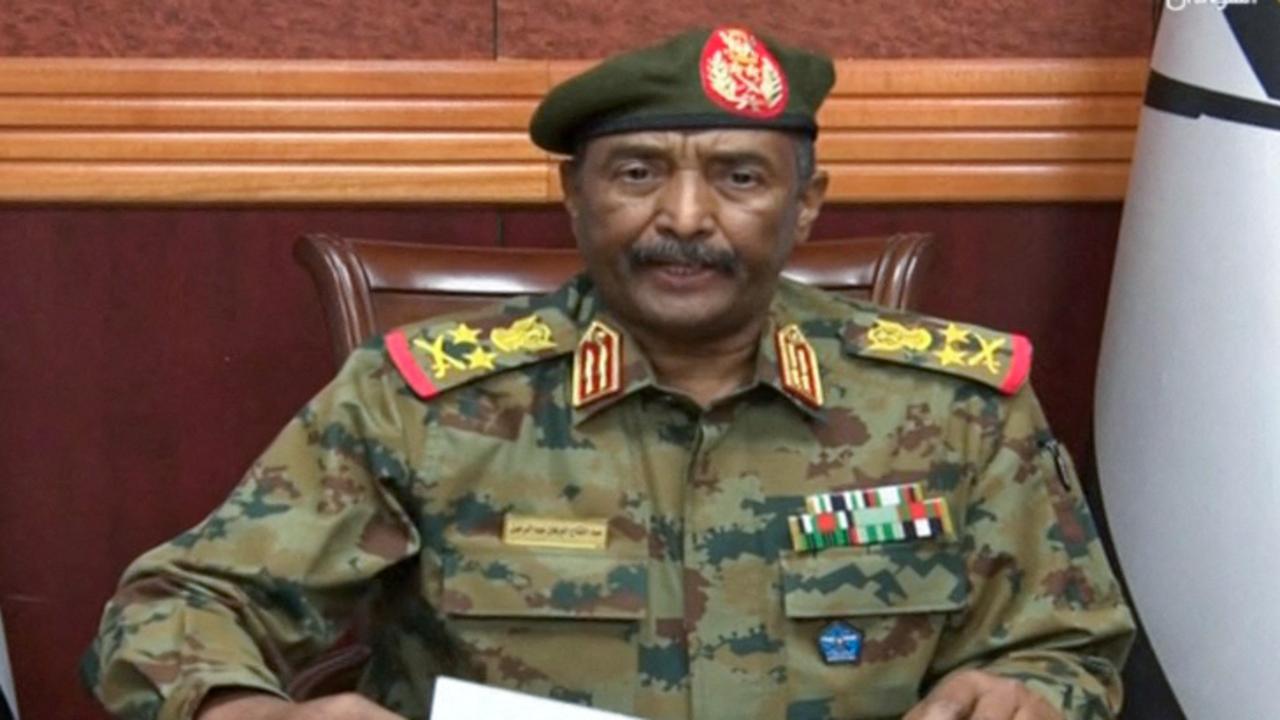
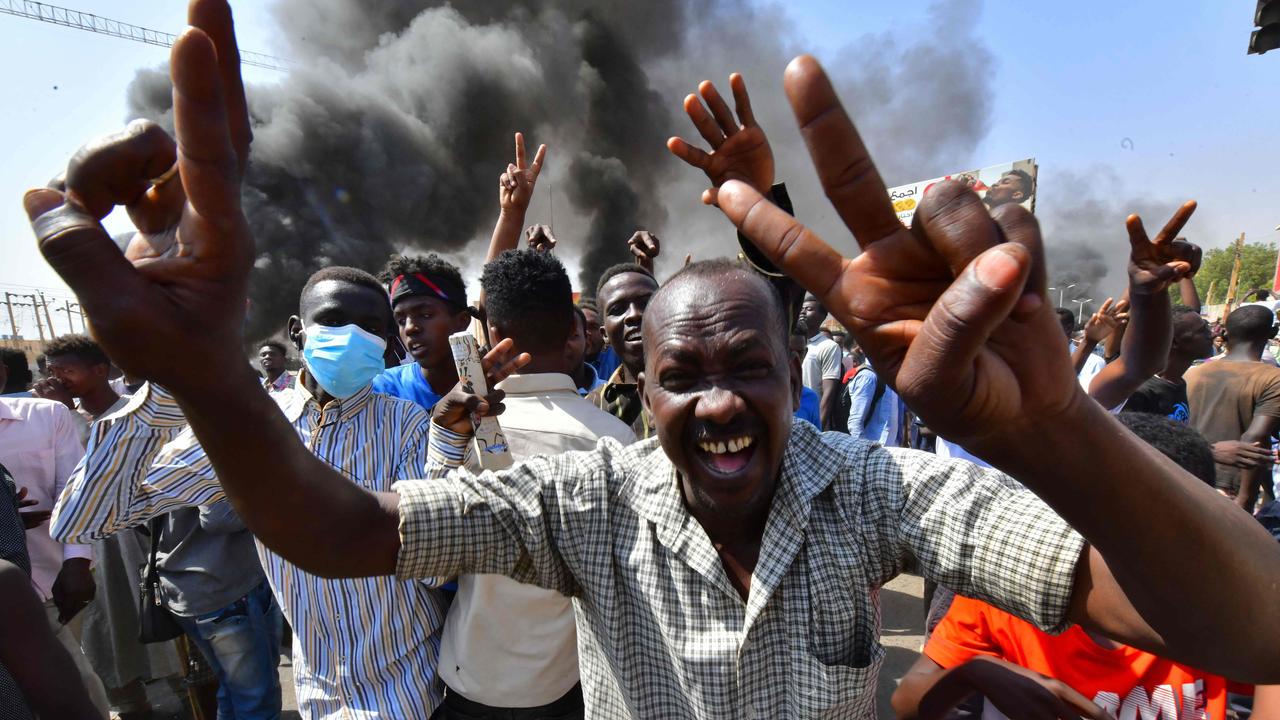
General Burhan announced in a televised address that armed forces had detained government leaders who had been leading the transition to full civilian rule after autocrat Omar al-Bashir was removed from power in April 2019.
Mr Bashir ruled Sudan with an iron fist for three decades. He is currently in jail in Khartoum and is wanted by the International Criminal Court on charges of genocide during civil war in Darfur.
“To rectify the revolution’s course, we have decided to declare a state of emergency nationwide … dissolve the transitional sovereign council, and dissolve the cabinet,” General Burhan said, who announced the formation of a new government.
Clashes erupted in the capital Khartoum after his speech, with the information ministry saying that soldiers had “fired live bullets on protesters rejecting the military coup outside the army headquarters”.
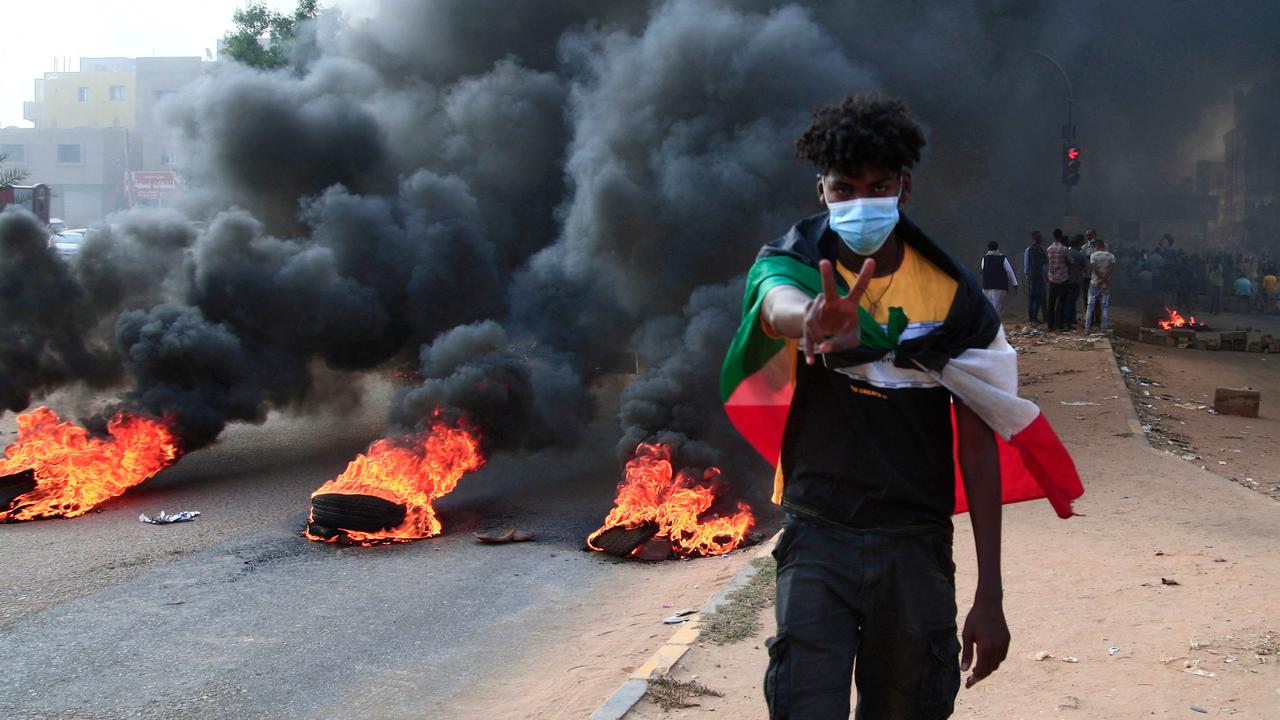
Three protesters were killed and some 80 people wounded as “forces of the military council coup” opened fire to put down the furious demonstrations against the military, according to the independent Central Committee of Sudan Doctors.
“Civilian rule is the people’s choice,” demonstrators chanted. “No to military rule.”
Some waved flags and used tyres to create burning barricades.
World reacts to coup
A White House spokesman said the US was “deeply alarmed” by the events in Sudan.
The United Kingdom’s Africa minister Vicky Ford described the coup was an “unacceptable betrayal of the Sudanese people and their democratic transition.”
She urged security forces to release Prime Minister Hamdok and other civilian leaders.
“Those who do not respect right to protest without fear of violence will be held to account,” she wrote on Twitter.
French President Emmanuel Macron said, “I express my support to Sudan’s transition government and call for the immediate release and the respect of the integrity of the Prime Minister and civilian members of government.”
‘Autocracy back on the menu’
UN Secretary-General Antonio Guterres denounced the military takeover and called for leaders to be freed.
“I condemn the ongoing military coup in Sudan,” Mr Guterres said.
“Prime Minister Hamdok and all other officials must be released immediately.”
Mr Hamdok had previously described splits in the transitional government as the “worst and most dangerous crisis” facing the transition.
Internet services were cut across the country and roads into Khartoum shut, before soldiers stormed the headquarters of Sudan’s state broadcaster in the capital’s twin city of Omdurman, the information ministry said.
âš ï¸ Confirmed: Internet disrupted in #Sudan amid reports of military coup and detention of Prime Minister; real-time network data show national connectivity at 34% of ordinary levels; incident ongoing 📉
— NetBlocks (@netblocks) October 25, 2021
📰 Live Report: https://t.co/uVVZKchH5Spic.twitter.com/SoyZK2uYQ9
Under a 2019 power-sharing deal after the ousting of Bashir, Sudan is ruled by a sovereign council of civilian and military representatives tasked with overseeing a transition to a full civilian government.
But in recent weeks the cracks in the leadership had grown wide.
Jonas Horner, from the International Crisis Group think tank, called it an “existential moment for both sides”.
“This kind of intervention … really puts autocracy back on the menu,” he said.
The power grab by the army was condemned by the international community, with the European Union calling for the “fast release” of the civilian leadership, and the African Union and Arab League also expressing concern.
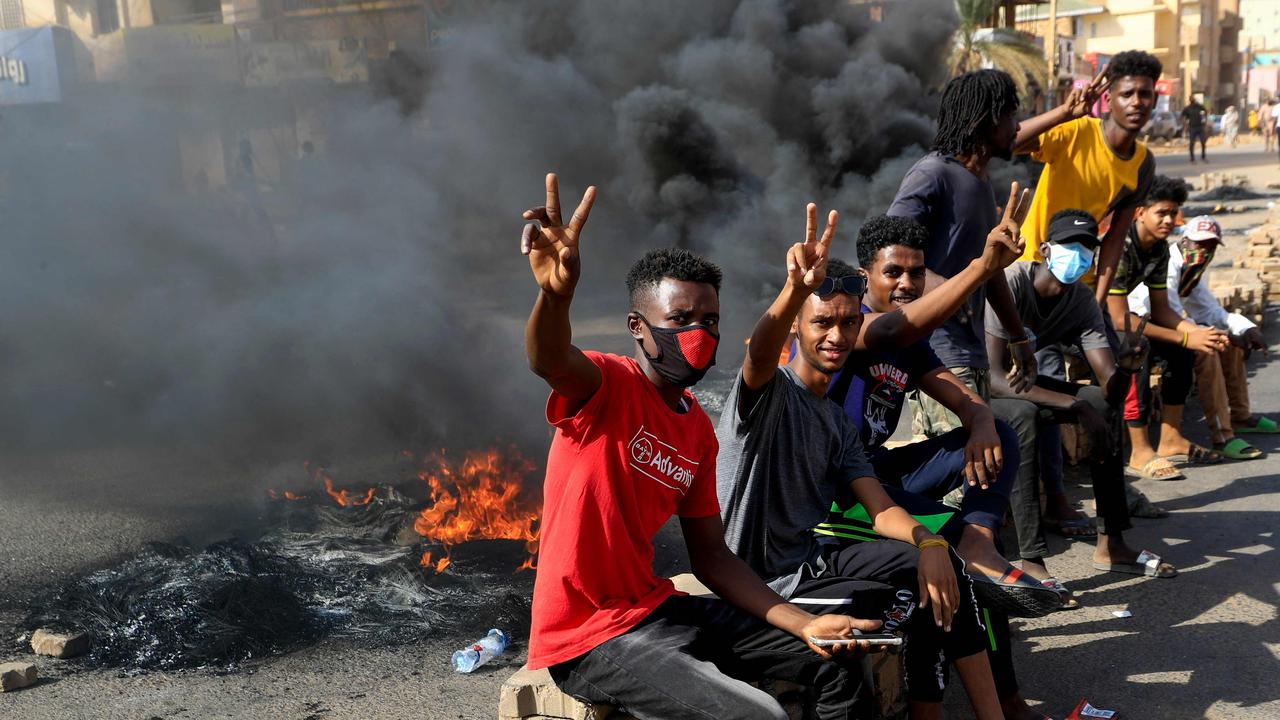
US Special Envoy for the Horn of Africa Jeffrey Feltman said Washington was “deeply alarmed at reports of a military takeover of the transitional government”.
And UN High Commissioner for Human Rights Michelle Bachelet warned Sudan risked returning to oppression.
“It would be disastrous if Sudan goes backwards after finally bringing an end to decades of repressive dictatorship,” Ms Bachelet said.
Ahmed Soliman, an analyst from Britain’s Chatham House think tank, said a military takeover could jeopardise critical donor support for already economically struggling Sudan.
“Sudan’s international partners have made clear all along that their continued engagement is contingent on the political transition moving forward,” Mr Soliman said.
Protest calls
In recent days, rival protests have been held, with sit-ins outside the presidential palace demanding a return to “military rule”, and in response, tens of thousands marched to back the full transfer of power to civilians.
The two sides represent opposing factions of the Forces for Freedom and Change (FFC), the civilian umbrella group which spearheaded demonstrations that led to the overthrow of Bashir.
Tensions between the two sides have long simmered, but divisions flared up after a failed coup on September 21 this year.
The developments come two days after the mainstream FFC leader Yasser Arman warned of a “creeping coup”, at a news conference in Khartoum that was attacked by an unidentified mob.
On Monday, the mainstream FFC appealed for nationwide “civil disobedience”.
The Sudanese Professionals Association, an umbrella group of trade unions which were key in leading the 2019 anti-Bashir protests, denounced what it called a “military coup” and urged demonstrators “to fiercely resist” it.
Protesters were seen marching through the streets of Khartoum carrying the Sudanese flag.
“We will not accept military rule, and we are ready to give our lives for the democratic transition in Sudan,” demonstrator Haitham Mohamed said.
“We will not leave the streets until the civilian government is back,” Sawsan Bashir, another protester, told AFP.
- with AFP



